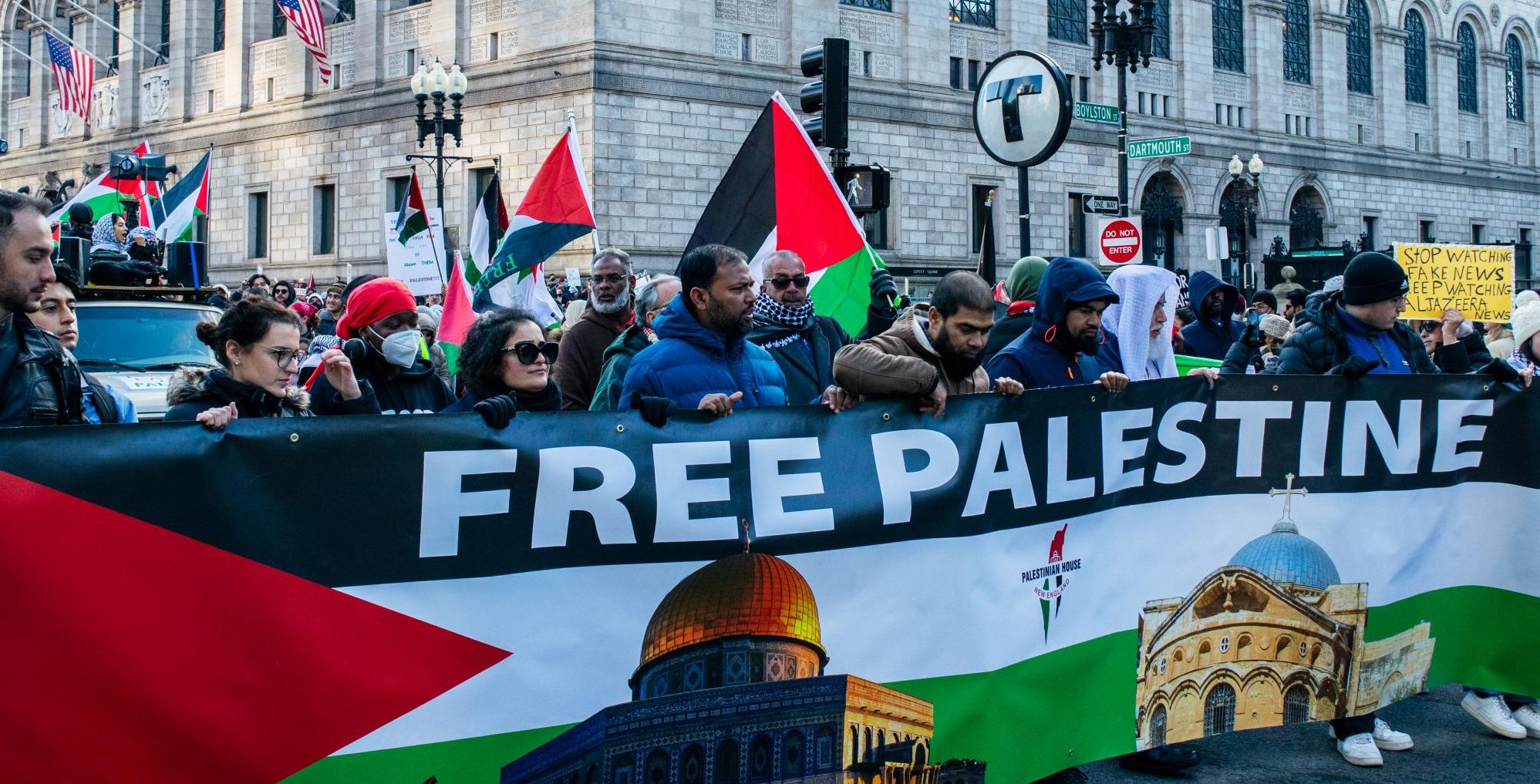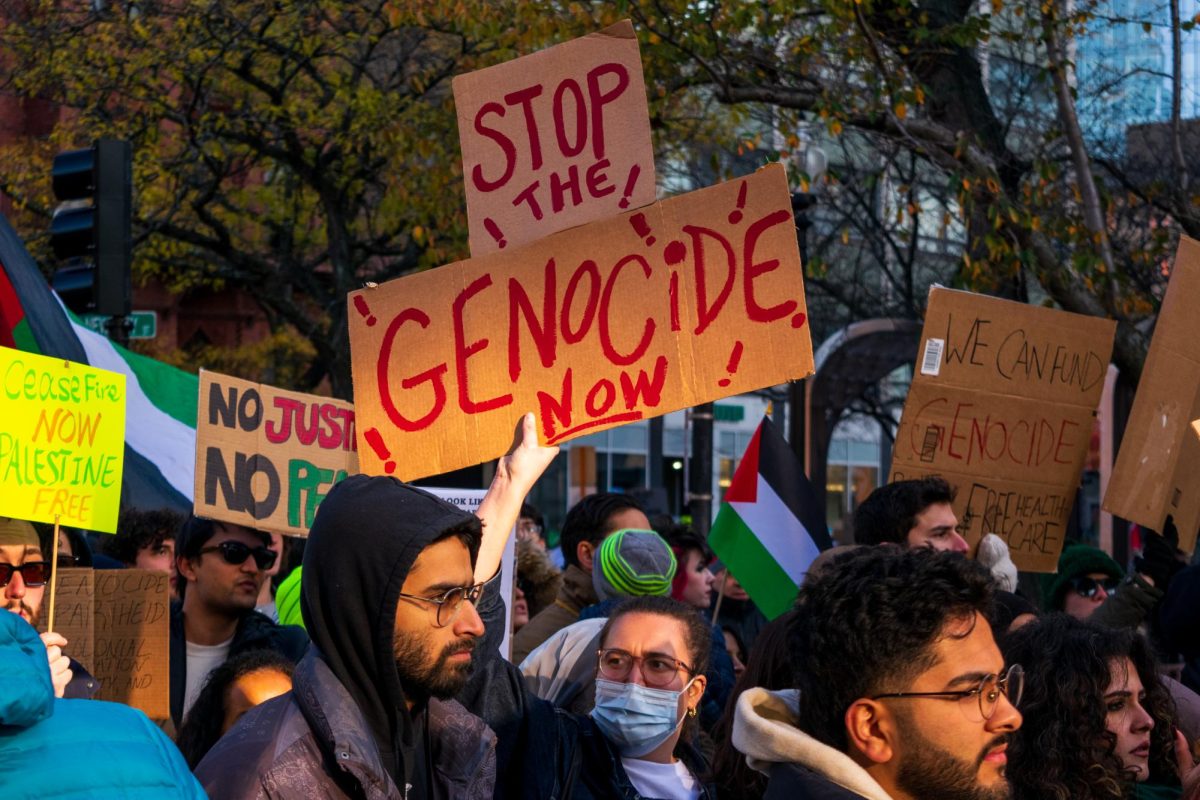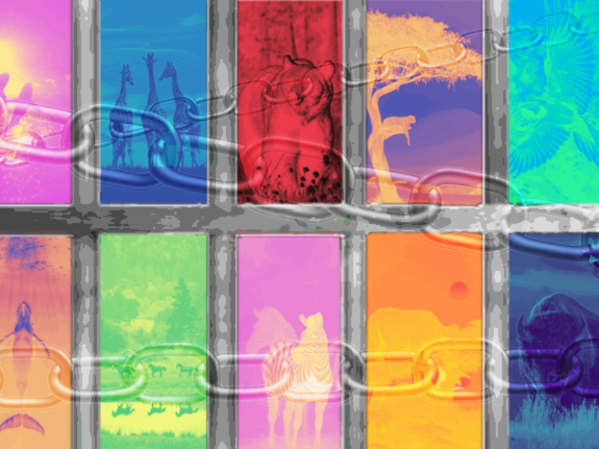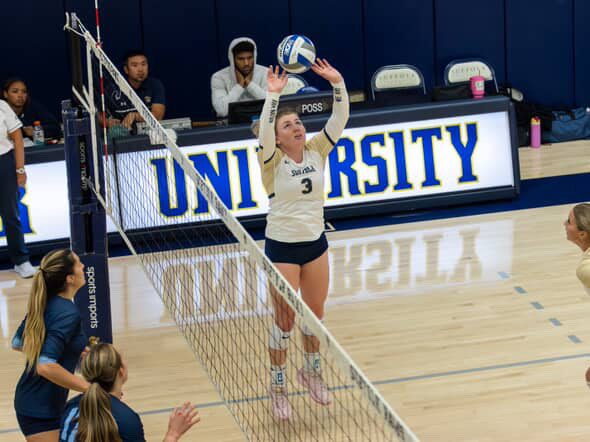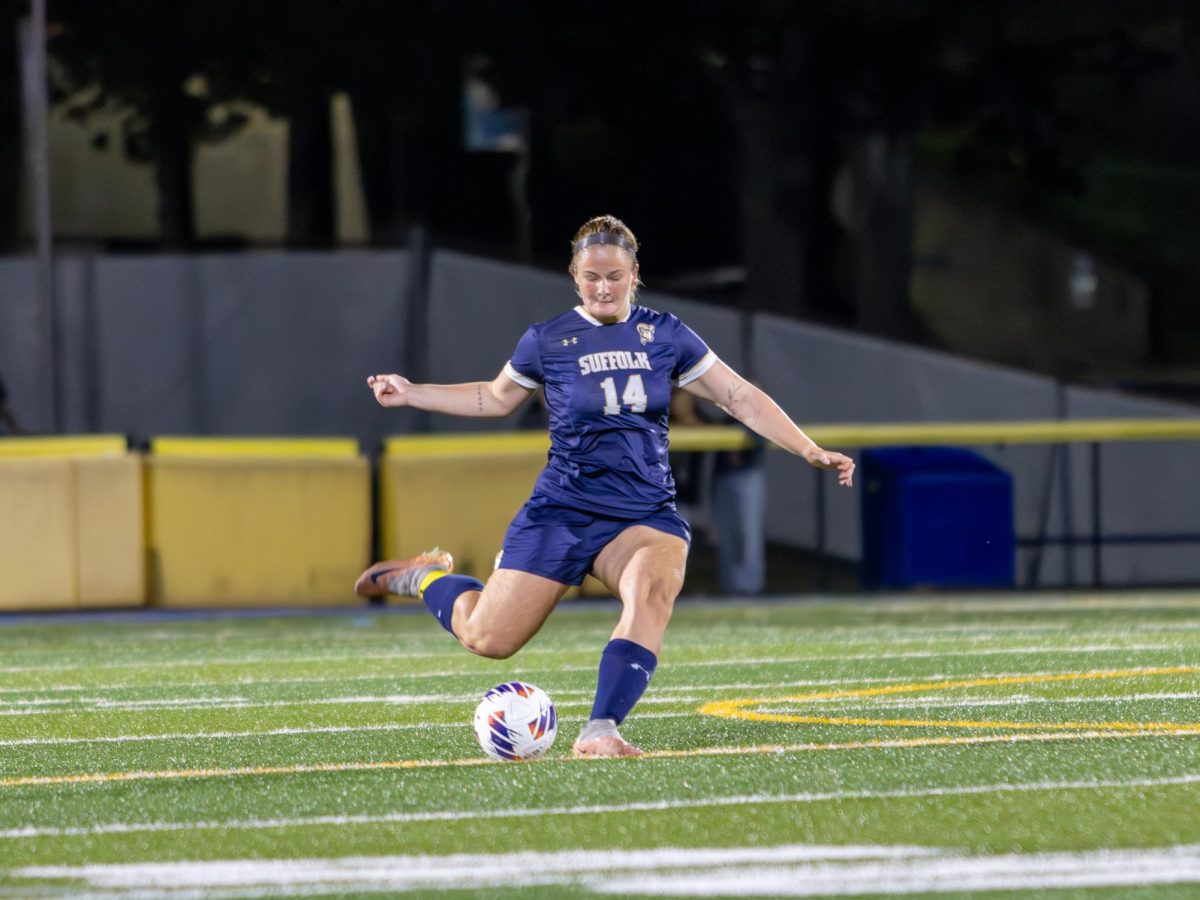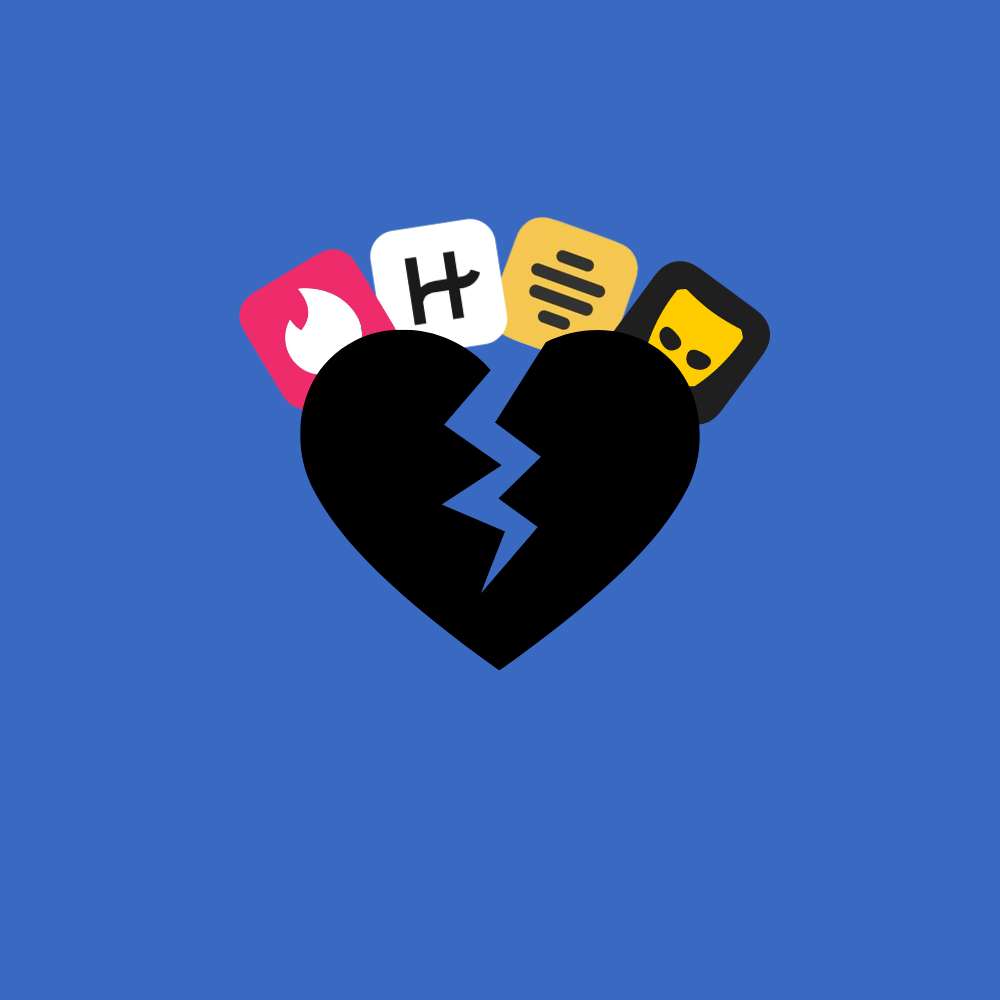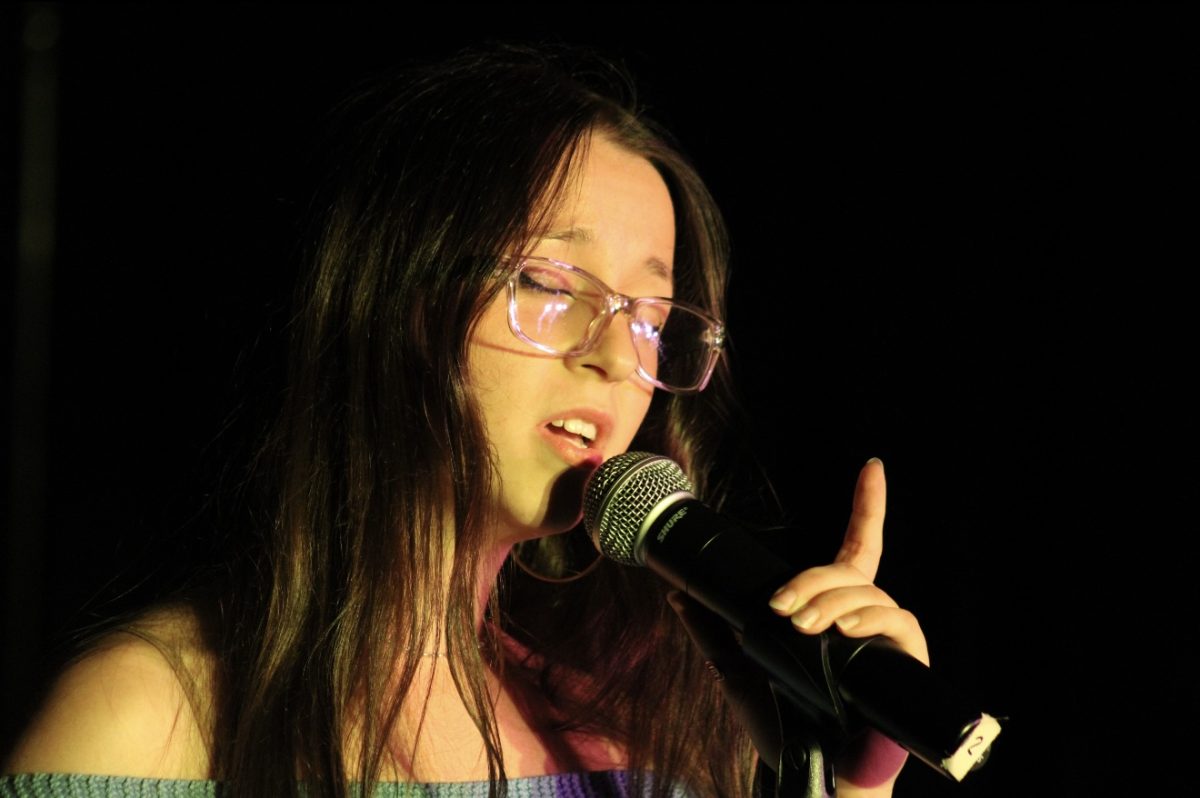Thousands gathered at Copley Square Nov. 12 to call for a ceasefire in the ongoing war between Israel and the Palestinian militant group Hamas that has devastated the Gaza Strip.
The demonstration, organized by the Pan-African Liberation Program, Activists for Palestine, Mosque for Praising Allah, Diocese St. Francis of Assis, Huskies for a Free Palestine, Pride at Work and Franciscan of Saint Jose Cupertino, marched from the Boston Public Library to the Massachusetts Institute of Technology, according to The Boston Globe. The march forced the shutdown of Mass. Ave. between Vassar Street and Memorial Drive, as well as streets surrounding Copley Square.
Israel has continued to launch air strikes on Gaza following an attack on Israel Oct. 7 by Hamas, resulting in around 1,200 deaths and 240 hostages according to the Israeli government. Israel declared war Oct. 8, and since then over 11,100 Palestinians have been killed, according to the Gaza Health Ministry.
Millions of people across the world have called on governments, particularly the United States, to help negotiate a ceasefire between Israel and Hamas. President Joe Biden and Secretary of State Antony J. Blinken have said they oppose a ceasefire due to its potential for allowing Hamas to carry out future attacks, as reported by The New York Times.
The ongoing conflict has weighed heavily on Arab and Jewish Americans, who are tied to the conflict despite the physical distance, said Suffolk University sophomore Danny Metri.
“The past month has been tough for me. It’s been really taxing to see a lot of the videos on the internet, to see a lot of the news, it’s very demoralizing because I’m here and it feels very limited as to what I can do,” said Metri, who attended the Nov. 12 protest.
Demonstrators chanted for a ceasefire, condemning both Biden and Israeli Prime Minister Benjamin Netanyahu for the continued violence in Gaza. Protests across the nation have also sparked in response to U.S. aid to Israel.
“I think everybody should have the word ceasefire coming out of their mouths. Regardless of your nationality, in my opinion first and foremost should always come innocent people, and what’s happening right now is absolutely unjust and terrible,” said Metri.
In addition to the call for a ceasefire, protesters voiced their support of the Palestinian liberation movement.
“My grandfather is Palestinian, he was removed from his homeland in 1948 during the Nakba, so I think it’s really important, because there have been 80 years of this occupation, to come out and show support for this,” said Olivia Cassinari, a Suffolk alum and graduate student at Boston University in attendance at the protest.
For Metri, the size of the crowd, estimated to be upwards of 3,000 people by Boston Police, demonstrated a rise in awareness and support in the American public.
“I think [the protest] was successful because, you can ask any Middle Eastern person, we’ve never seen this level of solidarity and support for Palestinian people. I was walking with my friend, and I looked forward and looked back, and the crowd was huge. I would’ve never expected something like this in the United States,” said Metri.
Cassinari stressed the importance of considering the complexity of the situation and having compassion.
“Have some humanity. Don’t just assume that because Palestinians are in Gaza that they’re automatically Hamas or terrorists, just like don’t assume that if you are Jewish that you are a Zionist or anything like that. Just have humanity for both sides,” said Cassinari.
Metri, after finding solace in participating in the protests, said he encourages anyone who is able to use their voice to do so in ways that make sense to them.
“I think everyone has a voice. Anyone who has a platform, anyone who feels comfortable doing it, should be talking about a ceasefire. Whether it be calling your representatives, putting things on social media, it’s that simple. It’s really just one word at this point for me,” Metri said.
Protests calling for a ceasefire have continued across Boston. Approximately 60 people calling for a ceasefire blocked morning traffic on the Boston University bridge between Cambridge and Boston Nov. 16, according to The Boston Globe.


